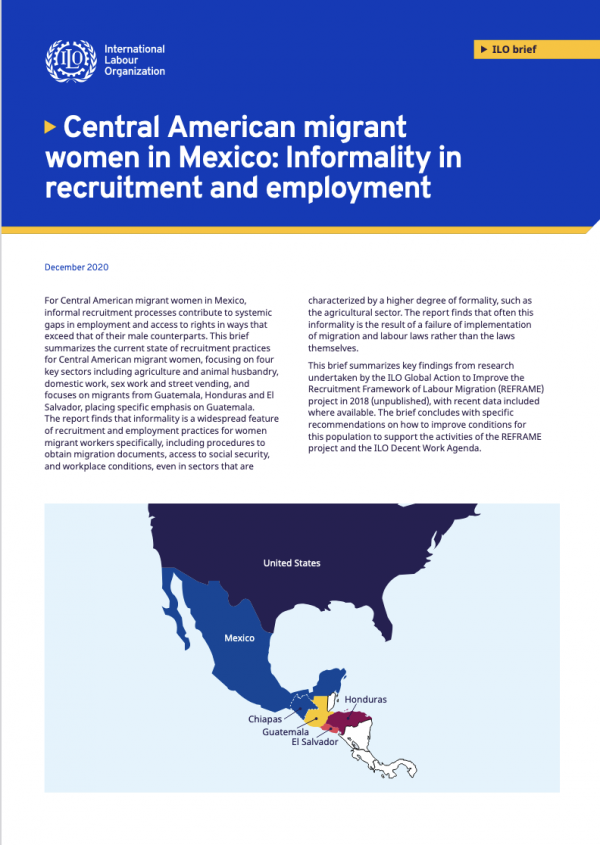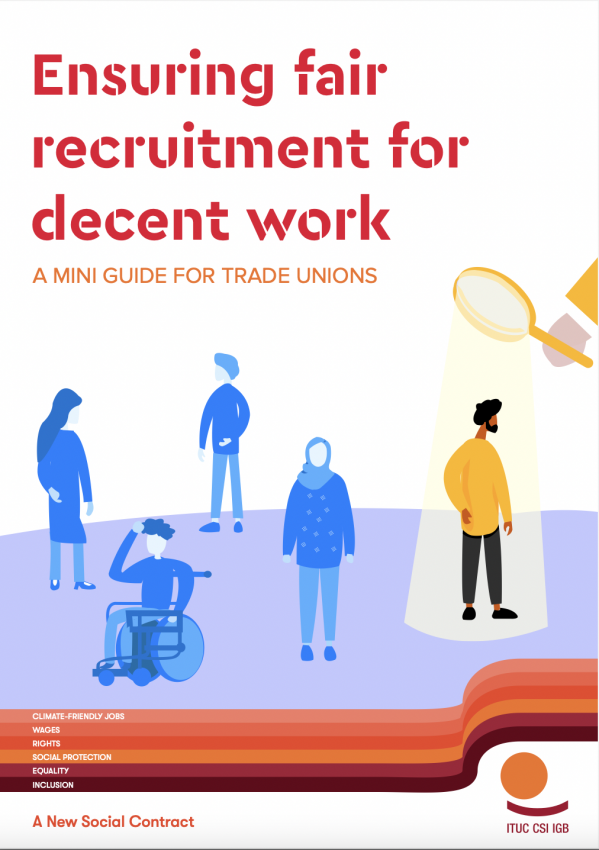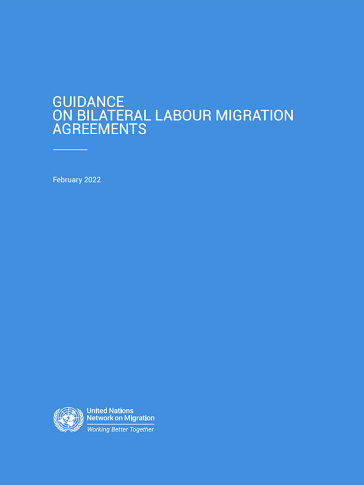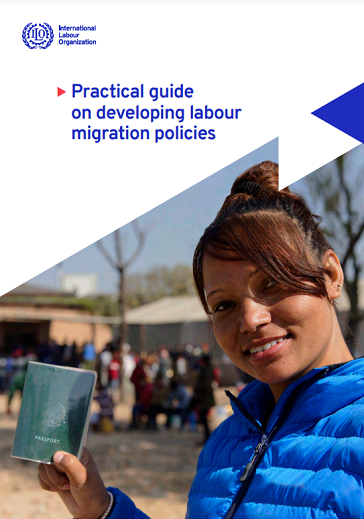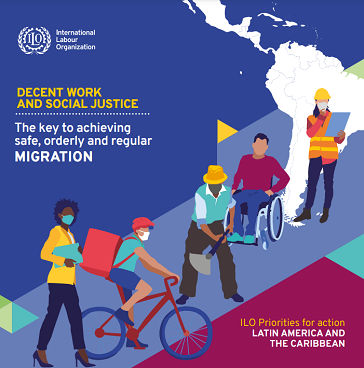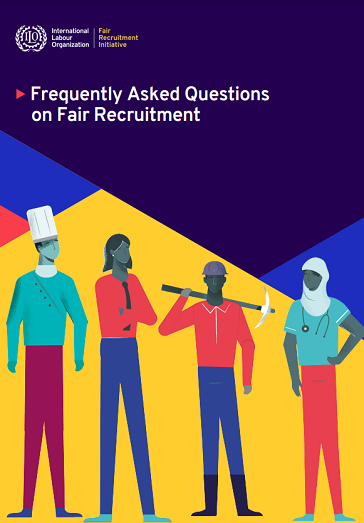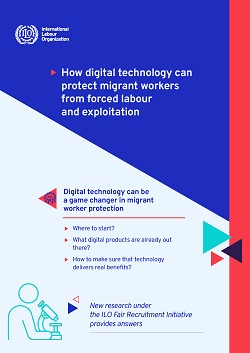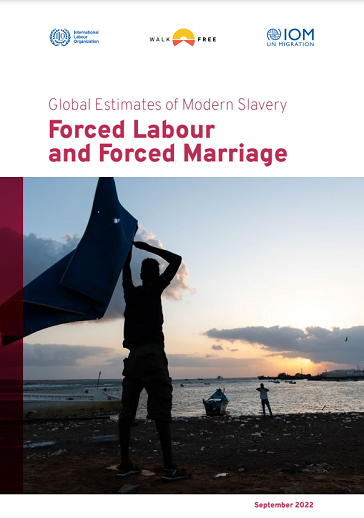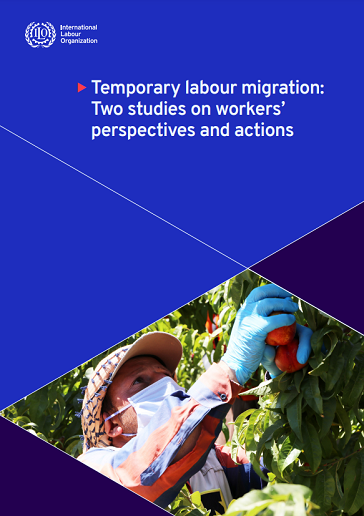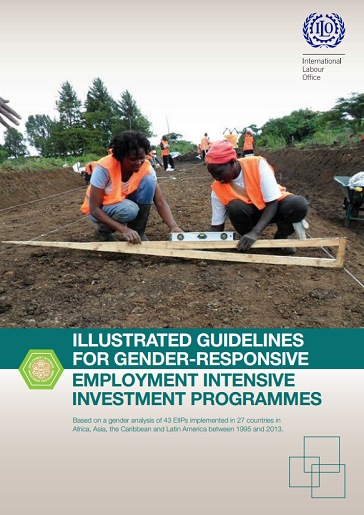Central American migrant women in Mexico: Informality in recruitment and employment
This brief summarizes key findings from research undertaken by the ILO Global Action to Improve the Recruitment Framework of Labour Migration (REFRAME) project in 2018 (unpublished), with recent data included where available. The brief concludes with specific recommendations on how to improve conditions for this population to support the activities of the REFRAME project and the ILO Decent Work Agenda.
Type of document :
Country/Region :
Year of publication :
Theme :
Ensuring fair recruitment for decent work - A mini guide for trade unions
This mini guide focuses on how can trade unions advance fair recruitment and what is fair recruitment.
The mini guide is available in Arabic, French, English, and Spanish.
Type of document :
Country/Region :
Year of publication :
Theme : ,
Guidance on bilateral labour migration agreements
Bilateral labour migration agreements if based on international labour standards can be a key tool in labour migration governance which ensures safe, orderly and regular labour migration.
To support the development of such agreements, this guidance was produced by a multi-stakeholder thematic working group under the United Nations Network on Migration, co-chaired by ILO with IOM.
It contains practical guidance grounded in international labour and human rights standards and drawing from real examples around the world. It shows how social dialogue benefits the development, implementation and monitoring of these agreements, and can be used as a basis for training and preparing for negotiation of bilateral labour migration agreements.
Type of document :
Country/Region :
Year of publication :
Theme : , ,
Practical guide on developing labour migration policies
This guide is intended to provide practical and succinct guidance on the process to be undertaken by ILO constituents governments, workers’ organizations, employers’ organizations, in consultation with civil society organizations and other relevant partners, during the course of developing or revising a national labour migration strategy, policy and/or action plan.
Type of document :
Country/Region :
Year of publication :
Theme : ,
Decent work and social justice: The key to achieving safe, orderly and regular migration
Short document outlining the ILO's priorities for action in Latin America and the Caribbean, including promoting the integration of the "Fair Migration Agenda" into strategies to strengthen labour migration governance and working with governments, workers' organisations, employers' organisations and employment agencies, with the objective of ensuring that recruitment ―including international recruitment― is carried out in a fair, transparent and ethical manner, and with full respect for relevant international labour standards, as well as the ILO's General Principles and Guidelines for Fair Recruitment.
Type of document :
Country/Region :
Year of publication :
Theme : ,
Frequently asked questions on fair recruitment
The ILO has developed this series of Frequently Asked Questions (FAQs) on fair recruitment challenges to respond to questions commonly received by constituents. The FAQs are designed to provide user-friendly answers to technical questions related to the implementation of fair recruitment in practice.
Type of document :
Country/Region :
Year of publication :
Theme : , ,
How digital technology can protect migrant workers from forced labour and exploitation
Digital technology can be a game changer in migrant worker protection. But where to start? What digital products are already out there? How to make sure that technology delivers real benefits? A new research under the ILO Fair Recruitment Initiative provides answers.
This infographic report features tips and advice on how to design, develop and promote digital products for migrant workers. It is based on the ILO research “Use of digital technology in the recruitment of migrant workers” (2021).
Type of document :
Country/Region :
Year of publication :
Theme : , , ,
Global estimates of modern slavery: Forced labour and forced marriage
The 2021 Global Estimates reveal that, at any time during the reporting period, 49.6 million people were victims of modern slavery, either forced to work against their will or to live in a marriage without their consent.
Among the victims of modern slavery, forced labour accounts for 27.6 million and forced marriage for 22 million. According to the same report, a significant portion of forced labour cases can be attributed to abuses that occur during the recruitment phase. This report therefore calls for the promotion of fair and ethical recruitment to protect workers from abusive and fraudulent practices during the recruitment and placement process, including the charging of exorbitant recruitment fees and related expenses by unscrupulous recruitment agencies and labour brokers.
Type of document :
Country/Region :
Year of publication :
Theme : ,
Temporary labour migration: Two studies on workers’ perspectives and actions
This report gathering two studies on workers organizations’ experience with temporary labour migration is part of a larger ILO project to gather knowledge on temporary labour migration.
The views on temporary labour migration vary greatly, including among ILO constituents. In light of the various concerns that the complex dynamics of temporary labour migration raise, it is crucial for the Office to capture constituents’ perspectives to enrich the debate. This document is an input from the Workers’ side to this process.
Type of document :
Country/Region :
Year of publication :
Theme : , , ,
Illustrated guidelines for gender-responsive employment intensive investment programmes
This guide is the outcome of a study carried out on gender and public works, and has been developed using evidence from 43 EIIPs implemented in 27 countries in Africa, Asia, Latin America and the Caribbean between 1995 and 2013.
Good practices include experiences in fair recruitment in Ghana, Kenya, Sierra Leone, Uganda, Indonesia, Haiti, Guatemala and Nicaragua.
Type of document :
Country/Region :
Year of publication :
Theme : , , , ,
Subscribe to the Fair Recruitment Initiative Newsletter
Sign up to receive news delivered to your inbox.

